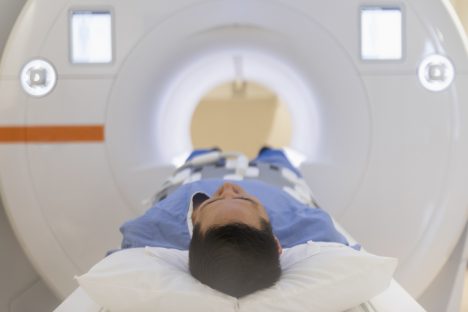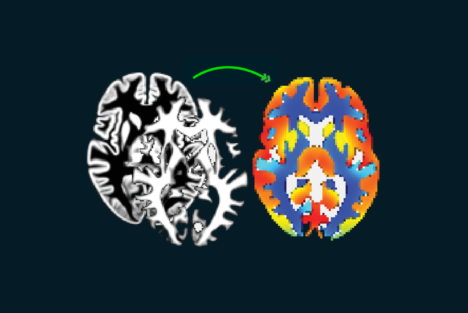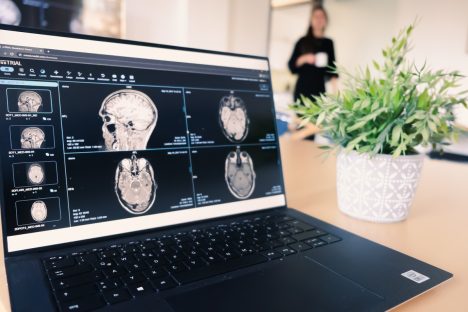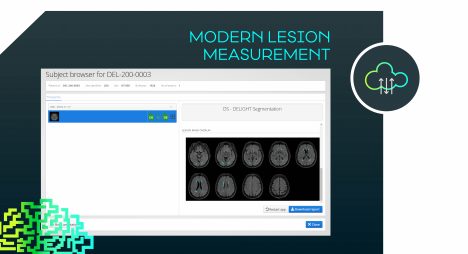Imaging biomarkers
Imaging Biomarkers – patient-friendly early warning systems
With imaging biomarkers, we use biological characteristics to monitor disease progression or support a diagnosis. The advantage is that they are usually non-invasive, do not require contrast media and can detect a disease even before it manifests.

Analysis methods supported by AI technologies
Today, mediri uses AI-based technology in various research projects on imaging biomarkers. This state-of-the-art technology helps to develop and refine analysis methods.
A selection:
ASPIRE: Non-invasive Alzheimer’s early detection using ASL (Arterial Spin Labelling). Learn more
KI4MS: AI-assisted detection of smouldering lesions for follow-up of MS
BOSOMSHIELD: more precise breast cancer prognosis through comprehensive AI models. Learn more
Read more about the research projects in the slider below
« Biomarkers cover a broad spectrum: from body temperature and blood count to the expression of certain genes in cancer cells. MR-based biomarkers are particularly elegant because they are non-invasive, i.e., they do not require a biopsy or blood sample. »
CEO





